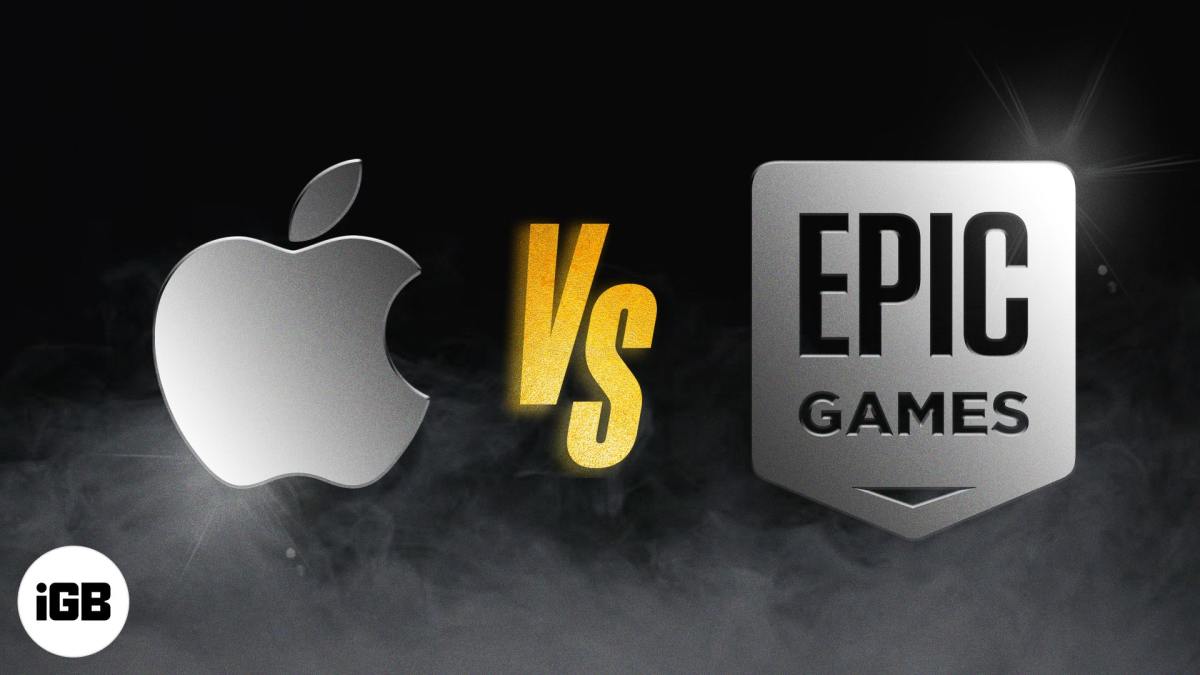ntroduction: In the ever-evolving landscape of the tech industry, clashes between major players are not uncommon. One such showdown that gripped the gaming and tech communities in recent times is the legal feud between Apple and Epic Games. What began as a dispute over App Store policies escalated into a high-stakes legal battle with far-reaching implications for the future of mobile gaming and digital marketplaces. Let’s delve into the twists and turns of the Apple vs. Epic Games saga to understand what transpired and its potential implications.
- The Genesis of Conflict:
- The conflict between Apple and Epic Games erupted in August 2020 when Epic Games introduced a direct payment option in its popular game Fortnite, bypassing Apple’s App Store payment system.
- Apple swiftly responded by removing Fortnite from the App Store, citing violations of its App Store guidelines regarding in-app purchases and payment processing.
- Epic Games retaliated by filing a lawsuit against Apple, accusing the tech giant of anti-competitive behavior and monopolistic practices.
- Epic’s Antitrust Allegations:
- Central to Epic’s legal challenge is the allegation that Apple’s App Store policies stifle competition and innovation by imposing exorbitant fees and imposing restrictive rules on developers.
- Epic argues that Apple’s mandatory 30% commission on in-app purchases creates an unfair advantage for Apple’s own apps and services, while hindering developers’ ability to offer competitive pricing.
- The lawsuit also raises concerns about Apple’s control over app distribution and the lack of alternative app stores on iOS devices, limiting consumer choice and stifling innovation.
- Apple’s Defense and Counterclaims:
- Apple has vigorously defended its App Store policies, arguing that they are designed to ensure a safe and secure ecosystem for users while providing developers with valuable tools and resources.
- The tech giant asserts that Epic Games knowingly violated its developer agreement and sought to circumvent App Store guidelines for its own financial gain.
- Apple has also filed counterclaims against Epic Games, seeking damages for breach of contract and accusing the game developer of intentional interference with contractual relations.
- Legal Proceedings and Regulatory Scrutiny:
- The legal battle between Apple and Epic Games has unfolded in multiple jurisdictions, including the United States, Australia, and the European Union.
- Both parties have engaged in protracted legal proceedings, including hearings, motions, and appeals, with no immediate resolution in sight.
- The case has attracted significant attention from regulators, lawmakers, and industry stakeholders, prompting scrutiny of Apple’s App Store practices and calls for regulatory reforms to address concerns about monopolistic behavior.
- Implications for the Gaming Industry:
- The outcome of the legal dispute between Apple and Epic Games could have far-reaching implications for the gaming industry, particularly in the realm of mobile gaming and digital marketplaces.
- A ruling in favor of Epic Games could lead to changes in App Store policies and practices, potentially opening the door for increased competition and innovation in the mobile gaming market.
- Conversely, a victory for Apple could reinforce the status quo and reaffirm the tech giant’s control over its app ecosystem, albeit with potential adjustments to address concerns raised by developers and regulators.
Conclusion: The legal battle between Apple and Epic Games represents a pivotal moment in the ongoing debate over app store policies, digital marketplaces, and competition in the tech industry. As the conflict continues to unfold in courtrooms around the world, the outcome remains uncertain, but one thing is clear: the resolution of this dispute could reshape the future of mobile gaming and have far-reaching implications for developers, consumers, and tech companies alike.



